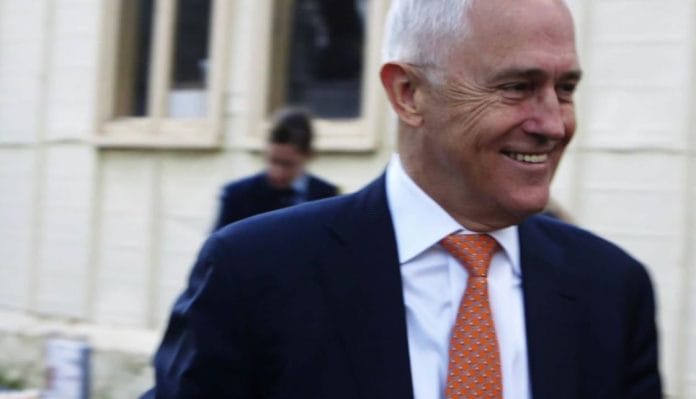One step closer to stability
Malcolm Turnbull, Australia’s prime minister, can breathe a sigh of relief now that the junior party in his coalition, the Nationals, elected Michael McCormack as its new leader — and thus, new deputy prime minister.
“For almost three weeks Mr Turnbull had endured a festering embarrassment after the press reported an affair between Barnaby Joyce, the previous Nationals leader, and his former press secretary, who is now pregnant. Mr Joyce had at first refused to resign as party leader, despite being caught flouting his own talk of family values. His long goodbye exposed tensions in the coalition, just as Mr Turnbull was trying to revive its fortunes ahead of an election due next year,” the Economist writes.
Joyce has been problematic in the past, and has done his best to avoid resignation. He was forced to resign last year for holding dual nationality, but he returned after renouncing his New Zealand citizenship. He even refused to leave after his affair, and allegations of hypocrisy. Turnbull has been powerless, unable to fire his deputy.
“The saga has only magnified fragilities within the coalition. The city-based Liberal Party, which Mr Turnbull leads, has been a political partner to the rural Nationals for almost 70 years. But the two partners have never formally merged, and their coalition has sometimes resembled a marriage of convenience. The Liberals espouse market economics and a small state, whereas the Nationals advocate greater government support for farmers and isolated rural communities.”
However, a new deputy doesn’t ensure new stability. “Mr McCormack has also expressed the sort of conservative social views that got Mr Joyce into trouble and have fallen out of favour with urban voters, at least. As a newspaper editor in Wagga Wagga, New South Wales, he once denounced “homosexuals and their sordid behaviour”. He has since apologised, and voted for same-sex marriage in parliament. Mr McCormack’s interest in helping small businesses will appeal to Mr Turnbull’s liberal instincts. Yet Mr Turnbull’s “inability to deal firmly with Joyce”, says Norman Abjorensen of the Australian National University, suggests there will be no easy way out should tensions arise again.”
It’s internal strength that matters, not external
“What was Vladimir Putin thinking? Viewed from the west, the Russian president’s decision to authorise an undercover campaign to destabilise the US presidential election looks risky, even bizarre,” writes Gideon Rachman in the Financial Times. Russian history teaches us that it is internal resilience and not external strength that defines how the country exercises its power.
“In a similar way, the power struggles of the 21st century — between the US and Russia, as well as China and the EU — are more likely to be determined by domestic resilience than by external strength.”
“Until recently, this would have been a contest that the US was supremely confident of winning. After all the great strength of the west is meant to be the legitimacy and stability created by democracy as well as the superior economic performance. “Freedom works” was the confident boast of former US president Ronald Reagan.”
“Mr Putin knows that Russia has grave internal weaknesses. But he also can see that the US has serious problems of its own. That is why he has adopted a strategy that some analysts call “last man standing”. Its bleak aim is to play up the weaknesses of the west, before Russia’s own weaknesses overwhelm Mr Putin,” Rachman writes.
The next (and only) global power
“President Xi Jinping of China has played his boldest political card yet, maneuvering to extend his rule indefinitely so that he can maintain control of the country’s complex system long enough to achieve the dream of great-power status, asserting economic and political influence across the globe,” editorialises the New York Times.
The changes seem to ensure that Xi will continue to pursue his agenda, and that if everything goes to plan, “he could preside over the transition when China eclipses the United States as the world’s largest economy in absolute terms within two decades.”
“But doubling down on the strongman model is risky. By moving from an autocratic collective to one-man rule, Mr. Xi has upset the political norms that were put in place to erase the personality cult of Mao and make political transitions more predictable.”
“The system Mr. Xi has created also makes it less likely he will receive sound policy advice or be challenged on decisions in ways that could avoid mistakes. That’s because he solidified his power base during the first term by waging an aggressive campaign against corruption and dissent, silencing political rivals and stacking the ruling Politburo with loyalists reluctant to speak up.”






